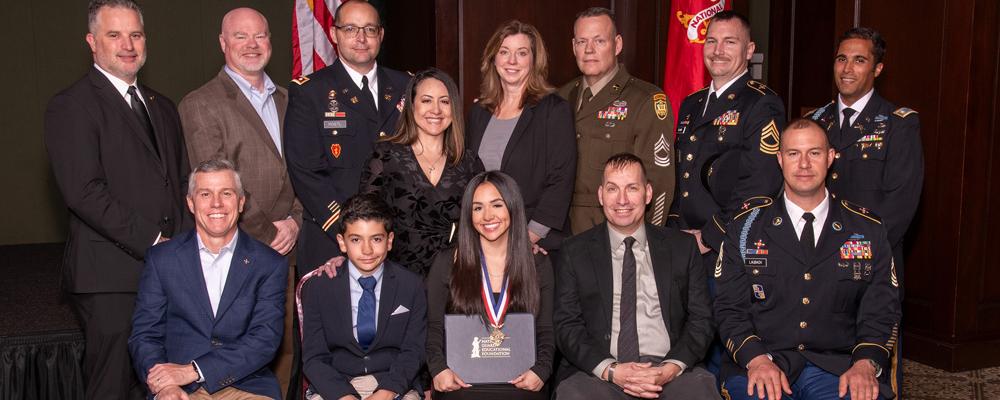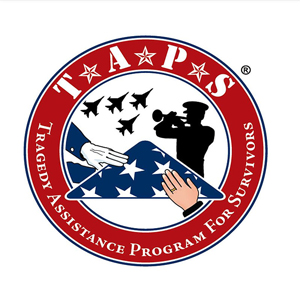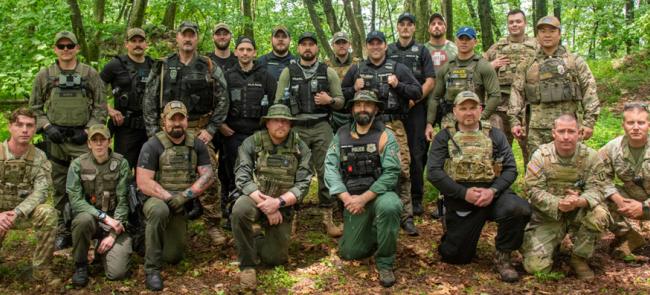
Gone But Never Far Away
For Charles Thompson, getting to his severely wounded Army National Guard brother in San Antonio, Texas, was simply the right thing to do — almost a no-brainer — immediately upon returning from his deployment to Afghanistan in early 2008.
Maryland Army Guard Sgt. 1st Class Collin J. Bowen had been horribly burned by a roadside bomb near the Afghanistan-Pakistan border on Jan. 2. The soldier with 1st Battalion, 175th Infantry Regiment, was not expected to live. Indeed, the blast had killed three others in the same vehicle.
So, Thompson flew to his best friend’s side at the Army Burn Center at Brooke Army Medical Center, and to support Bowen’s wife, Ursula, before he returned to his own wife and two small children at his home in Maryland.
“Collin and I were peers. We became friends because we both had the same mindset when it came to training and NCO leadership,” explains Thompson, who is now a master sergeant in the Army Reserve.
“I knew that once I went home, it would be more difficult for me to travel to Texas in a timely manner,” Thompson recalls. “I knew all of the soldiers in Collin’s vehicle had passed, and I wanted to see him in case he didn’t make it.”
Thompson had company. Others from that Guard band of brothers also beat feet to Texas after they returned from their deployment. No one ordered them to go there. No one even suggested it. They did it because it’s what comrades in arms do.
Then-Iowa Guard Maj. Timothy Sulzner was a team chief who became a close friend with Bowen in Afghanistan and was at his home on leave when Bowen was wounded. He had told Bowen not to go on that fateful mission. He had done enough, more than most, and was only days from going home.
But in Sulzner’s absence, Bowen went out of a sense of obligation to his fellow soldiers anyway.
“He was by far one of the best NCOs I’d ever worked with. He had the fire, man,” says Sulzner, who will retire this year as a colonel. “I loaded up the kids and my wife at the time and we flew down to San Antonio on a moment’s notice because, well, I needed to get down there.”
Thompson and Sulzner did get to spend some time with their friend and support his family. Bowen, ever the fighter, hung on, undergoing 15 surgeries before taking his last breath, at 38 years old, March 14, 2008. He is buried at Arlington National Cemetery.
Bowen may be gone, but he is never far from his comrades’ hearts. More than 16 years later, Thompson, Sulzner and many others continue to be there for his family. No one asked them to. They do it because they loved Bowen, and they know he would do the same if the roles were reversed.
They have shoveled snow and mowed the lawn for his widow, now Ursula Palmer after remarrying, and daughter, Gabriela, who was 3 when her father died. The Thompsons have welcomed Ursula and Gabriela into their home for Thanksgivings. Scores of them turned out for memorial reunions at Arlington National Cemetery and at the unit’s armory in Dundalk, Maryland, for the 10th anniversary of Bowen’s death.
Ten, some with their wives, attended Gabriela’s high school graduation in June 2023. Sulzner and Ursula visited Gabriela at the University of Alabama, where she began studying business cybersecurity last fall, thanks in part to a $6,250 annual scholarship provided by the USAA Guardian Scholarship Fund. It is administered by the National Guard Educational Foundation.
Some of those comrades were on hand when Ursula thanked the NGEF for its support during a donor reception at the National Guard Memorial, the NGAUS headquarters in Washington, D.C, in November.
She says Bowen knew his comrades would be there for his family if he didn’t make it home. “‘Don’t worry,’” Ursula recalls him saying before he deployed. “If anything happens to me, you will be very well taken care of.’” She didn’t know what it meant at the time, but she quickly learned upon Bowen’s passing.
“These guys are my family,” the native of Colombia with no direct family ties in this country says now. Sulzner says the feeling is mutual.
“It is important for us who served with these soldiers who sacrificed so much to, one, keep their memory alive and, two, to let that family know that they’re never forgotten,” he explains. “No matter what they need or when they need it or how they need it, we will figure it out. And we owe that to them. We’re a family. That’s the bottom line. And it’s a strong bond.”
It is important for us who served with these soldiers who sacrificed so much to, one, keep their memory alive and, two, to let that family know that they're never forgotten.
—Col. Timothy Sulzner of the Iowa Army National Guard
OTHERS WHO SUPPORT THE SURVIVORS of military casualties, whether through personal initiative or via formal programs and positions, echo Sulzner.
The fortitude of those bonds can be tested. There is no preparation for the utter turmoil a military death wreaks. Many surviving family members don’t know where to begin. And the knowledge that such tragedy is always possible for those in the military and their loved ones is of no comfort.
“We knew they had courage when they raised their right hand,” says Massachusetts Army Guard Chaplain (Maj.) Christopher Ziegler. “But oftentimes we haven’t had that opportunity to sit close and to say the things that we would want to have said. So, it’s harder for survivors to cope because they have regrets.”
On average, nearly 11 people are directly affected by an individual death, according to the national nonprofit Tragedy Assistance Program for Survivors, better known as TAPS. That translates into a lot of people who may need support.
The Army Guard’s Survivor Outreach Services support about 42,000 survivors in all three Army components nationwide, reports Virginia Army Guard Sgt. 1st Class Justin Clark, who manages the program at the National Guard Bureau. Air Force Families Forever reportedly provides long-term support to approximately 6,500 survivors in the three Air Force components and the Space Force.
Memorial Day in late May is one of the difficult times of year for survivors, claim their advocates, as is Veterans Day in November, the entire holiday season, the deceased’s birthdays and the anniversaries of their deaths. They are periods punctuated by pride and pain.
Understanding. Patience. That’s what many survivors need most, supporters say.
“Survivors may have suffered a devastating loss that is unimaginable to most people,” says Stephanie Ouellette, the Survivor Outreach Services coordinator for New Hampshire. “They don’t necessarily seek pity or expect others to feel sorry for them. But they don’t want people to forget who their loved ones are. I always encourage people who know a family who lost a loved one to ask them about their loved one. If they can’t talk about it, they’ll tell you. But I guarantee they will want to tell you about how that person lived.”
The Guard has created a strong legacy of remembering and honoring its own, especially during the 35 years since the first Persian Gulf War and the nearly 23 years since 9/11 as Guard units have been mobilized with greater frequency and sent into harm’s way.
A couple of factors may explain the strength of the ties that bind people together for years, even decades. One is the nature of combat itself. Sang Micheal, a columnist at Warinsights.com, addresses that point in a recent piece.
“Combat is an intense and challenging experience that can forge strong bonds between individuals who face it together,” Micheal writes. “In combat, individuals rely on each other for their safety and well-being, creating a deep sense of trust and camaraderie that is built on a foundation of shared experiences. The bonds that are formed during combat can have a lasting impact on individuals long after they have left the military. [They] can provide a sense of comfort and belonging that can last a lifetime.”
And there is the Guard family. Kansas Army Guard Lt. Col. Nichole “Nicky” Inskeep, the NGAUS Personnel-Medical Task Force chair, believes that sense of comfort and belonging is frequently extended to the survivors that fallen Guardsmen leave behind.
“I think it happens a lot,” she says. “Anytime you lose someone in your ranks, it affects the family. You take care of your family when they’re in need.”
People honor their falling and ultimately fallen comrades in various, often unique, ways. In so doing, they sometimes help themselves deal with their own grief, their own war wounds — including survivors’ guilt because they came home — and their comrades did not. Could they have done something different, better or faster to have prevented that death? Those questions can linger.
It felt like the right thing to do to honor [Sgt. Kyle Miller], and I think Kylee understands who she's named after and why.
—Lt. Col. Jason Inskeep of the Kansas Army National Guard
TAKE KANSAS ARMY GUARD LT. COL. JASON INSKEEP and his wife Nichole, from whom we have previously heard. Their 14-year-old daughter is named Kylee for Minnesota Army Guard Sgt. Kyle Miller, who was killed 18 years ago, on June 29, 2006, when a roadside bomb detonated too close to his vehicle during a patrol near Balad, Iraq.
Jason Inskeep was the patrol leader. He thought very highly of Miller, a communications specialist. “He was a really good soldier,” says Inskeep, who has maintained contact with Miller’s mother, Kathy, during the years since.
But his soldier’s death still weighs on Inskeep, his wife suggests. “I think he felt like he was responsible for Kyle. Jason and I talked a lot about what we were going to name our kids. We knew if we had a boy, we were going to name him Kyle. We already had one daughter, and when we found out we were having another girl, the best thing we could do was add an ‘e’ to Kyle.”
“For me,” says Jason, “it felt like the right thing to do to honor Kyle, and I think Kylee understands who she’s named after and why.”
There is some serendipity to this story. Kyle Miller was born in 1986. Kylee Inskeep was born in 2009. Both came into the world Oct. 15.
Nichole Inskeep is convinced that is a good thing. “I don’t know how to explain it, but Kylee has something special about her. Whatever you believe, it’s like she has this angel up above that watches over her.”
IT WAS A THEATER GROUP formed by New Hampshire Army Guard soldiers that provided comfort and support to Spc. Timothy Plaisted during his eight years of coping with brain tumors, apparently from traumatic brain injuries, that took his life in August 2015, says John Plaisted, his father. Timothy would have turned 35 the following month. He left behind his wife, Chrystal, and a young daughter, Chloe.
Plaisted sustained multiple concussions and at least one serious head injury from the shrapnel of an improvised explosive device that destroyed his Humvee during his tour in Iraq that began early into Operation Iraqi Freedom in 2003, John Plaisted recalls. Tim was a top gunner. His mountain infantry unit patrolled constantly, often guarding convoys, and he was “in several firefights,” his father says.
But Plaisted returned from Iraq and remained in the Guard for several years before being discharged as a disabled veteran, John Plaisted relates, after experiencing seizures because of inoperable tumors. Operations and radiation and chemotherapy treatments did not help.
“That was an issue that we dealt with for years as a family,” recalls the father, who became Tim’s caregiver around 2012. Tim’s situation took a turn for the worse in the summer of 2015, when “he started to display more severe symptoms, forgetfulness, all kinds of stuff,” John says.
But the son had not given up on himself. Despite his health issues, Tim began collaborating with thespians and fellow Guard soldiers Jonathan Hoar and Andrew Grassie to organize the Veterans in the Performing Arts in the Portsmouth, Dover and Rochester region of eastern New Hampshire.
“They got the idea of starting this theater group for veterans in an effort to get them acclimated back into society,” John explains. And Tim Plaisted was interested in performing.
“You’ve got to understand. Timmy was a big, gruff athlete. He’d played football and lacrosse at Dover High School. He probably had never been to a play in his life, never mind participating in one,” his father says.
Beginning around 2012, however, Tim performed in VIPA’s productions of A Few Good Men, Annie and Biloxi Blues. He played the poignant part of Boo Radley in To Kill A Mocking Bird.
“He got to know other people in the arts in that area,” John says. “He loved it. And it really helped him a lot. It kind of took his mind off his health issues.”
And his brothers in the Guard and on the stage refused to give up on Tim.
“Jon and Andrew and all those guys were very supportive of him and very patient with him when he had a hard time memorizing his lines,” says John nearly nine years after his son’s death. “Who knows? It may possibly have extended his life a couple of years because it gave him a purpose. I can’t thank them enough.”
VIPA’s outreach continued after Tim Plaisted died, his father says. The theater group kept on inviting casualty survivors to attend its performances free of charge. Plaisted was acknowledged as being one of the group’s founders during the performances. And the soldier’s daughter Chloe, now 13, has also benefited.
Grassie’s wife, Angela, and her mother, Corinne Allaire, are the owners as well as instructors at Corinne’s School of Dance in Rochester, New Hampshire. Chloe has been taking lessons at the school for years, John Plaisted explains.
“They’ve always been very supportive and helpful with her and very patient in bringing her along and doing what she’s doing. And that can be attributed to their affiliations with the Guard, with Tim and the knowledge of what his struggles were.”
Riding and getting to visit the Gold Star families that come out and cheer us on and thank us for what we're doing, it's hard to put into words how that has positively made an impact on my life.
—Chief Warrant Officer 3 Ray Butler (Ret.) of the Illinois Army National Guard
ALWAYS REMEMBER, NEVER FORGET!” is the slogan for a program in Illinois that retired Army Guard Chief Warrant Officer 3 Ray Butler has taken to heart for a very personal reason. He rides his bicycle 500 miles every September to honor five other Guard soldiers from his unit who were killed in Iraq.
The all-volunteer Gold Star Mission supports families who have received Gold Stars for sons, daughters and spouses who are wartime casualties. The mission’s hallmark event is the annual Gold Star 500, a five-day, 500-mile bicycle ride originally organized in 2017 to honor 34 Illinois Guardsmen, including five women, who have died during the Global War on Terror.
The number of fallen now includes all 300 or so of Illinois’ casualties in all the services who are remembered during these rides, says retired Army Guard Lt. Col. Eric Murray, one of the coordinators. Upwards of 40 riders, clad in blue and black racing kits featuring 34 gold stars, ride for five straight days during the final week in September. The event concludes on the final Sunday, Gold Star Mother’s and Family Day.
The rides have raised a total of $249,000 for scholarships that are presented to young people in the names and memories of the fallen, Murray explains.
Butler says he has benefited as both a supporter and a survivor.
For the last six years he has ridden 100 miles each day for each of the 1544 Fallen Five, the three men and two women, all Guard friends, who served with him and were killed in action during the 1544th Transportation Company’s 2004 tour in Iraq.
“We had a pretty tough deployment,” Butler says, “double-digit Purple Hearts, five KIAs for a small, 150ish-member unit. Even thinking about it now, it’s tough.”
The Fallen Five are Sgt. Shawna Morrison, Sgt. Ivory Phipps, Spc. Jessica Cawvey, Spc. Charles Lamb and Spc. Jeremy Ridlen.
“I personally knew Shawna Morrison growing up, from high school, college, from the same town,” Butler says.
“This ride is a stark reminder. The pain and the mental anguish that you experience somewhat symbolizes the pain and anguish that the families are going through. It pales in comparison to what the families go through when they find out their loved ones have died and during the anniversaries and holidays without their service members,” Butler says.
“I don’t think that I realized when I started riding [in 2018] how much I personally would benefit from the event,” he adds. “I suffer from PTSD, survivors’ remorse from our deployment. But riding and getting to visit the Gold Star families that come out and cheer us on and thank us for what we’re doing, it’s hard to put into words how that has positively made an impact on my life. That’s an amazing piece of this as well.”
“Getting together for occasions like this gives the Gold Star Families a sense of comfort,” says Nita Cross, who during past Gold Star rides has assisted the riders at rest stops and talked with many survivors.
She became a survivor herself, a Gold Star Mother, in November 2005 when her son, Illinois Army Guard Staff Sgt. Kyle Wehrly, 28, was killed in Iraq.
“It makes an impact because you know there are others feeling like you are and how they’re coping and what’s going on with them,” Cross adds. “It really makes me feel good that these men and women aren’t forgotten for what they’ve done.”
Bob Haskell is a retired Maine Army National Guard master sergeant and a freelance journalist in Falmouth, Massachusetts. He may be contacted via magazine@ngaus.org.
TOP PHOTO: Nine comrades of the late Sgt. 1st Class Collin J. Bowen pose with his widow, Ursula Palmer, their daughter, Gabriela, and her son from a second marriage, Ian Palmer, after she spoke to a National Guard Educational Foundation reception last year. (Photo by Paul Gillis)
More Information on Supporting Survivors
 The Tragedy Assistance Program for Survivors website at www.taps.org has a wealth of information to assist all those grieving the deaths of a military or veteran loved one.
The Tragedy Assistance Program for Survivors website at www.taps.org has a wealth of information to assist all those grieving the deaths of a military or veteran loved one.
Online resources include articles, videos and educational materials on trauma, grief and coping strategies across all ages, relationships to the deceased and manners of death. There are also details on TAPS peer-based support, grief counseling, casework assistance and connections to community-based care.
Information is also available on TAPS survivor seminars and retreats for adults and special camps to support children and teenagers through their grieving process. All core services are free of change for survivors.
TAPS also operates a 24/7 Helpline at 1-800-959-TAPS (8277) to provide emotional support, resources and information to anyone who has been impacted by a military death.
—NGAUS staff report



